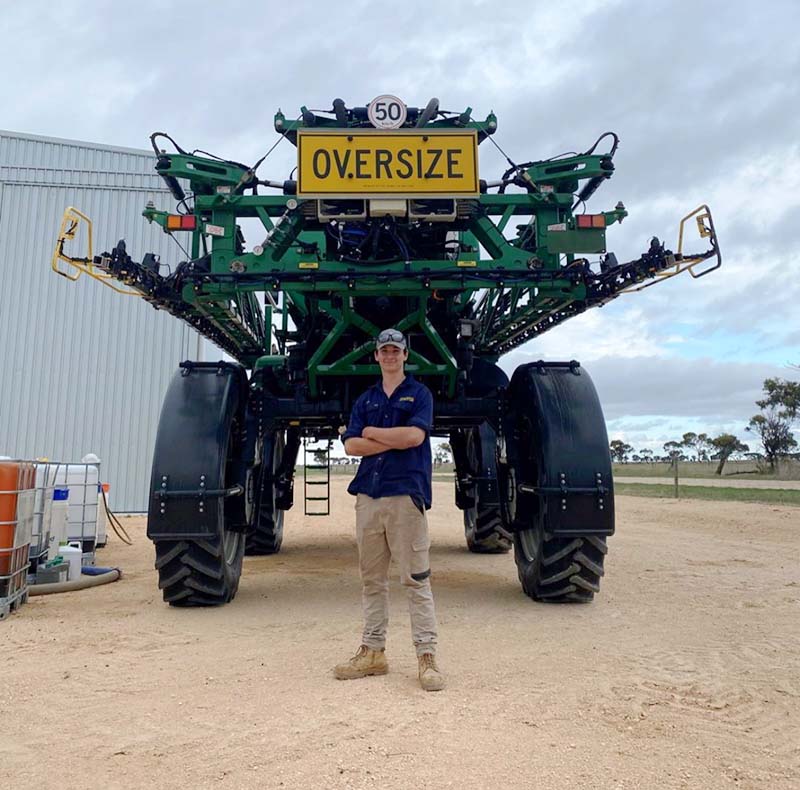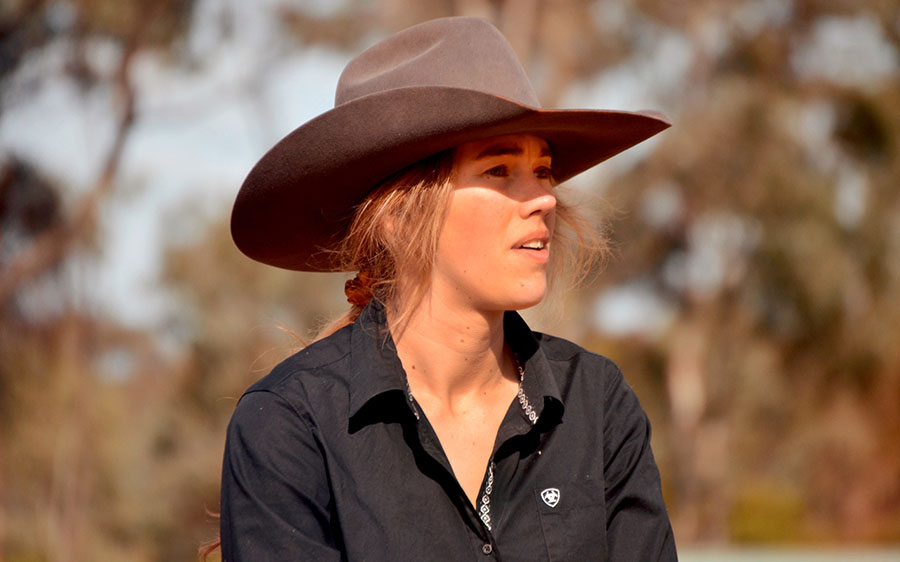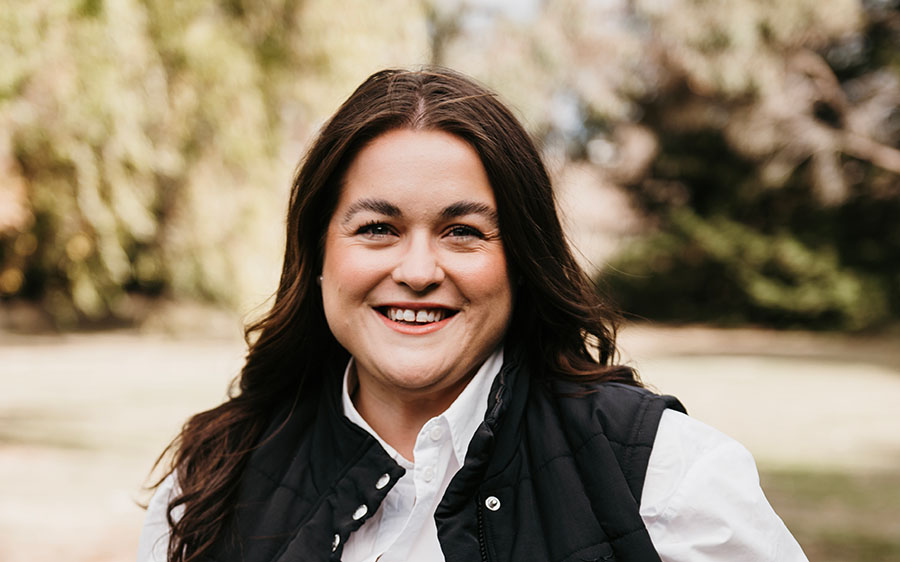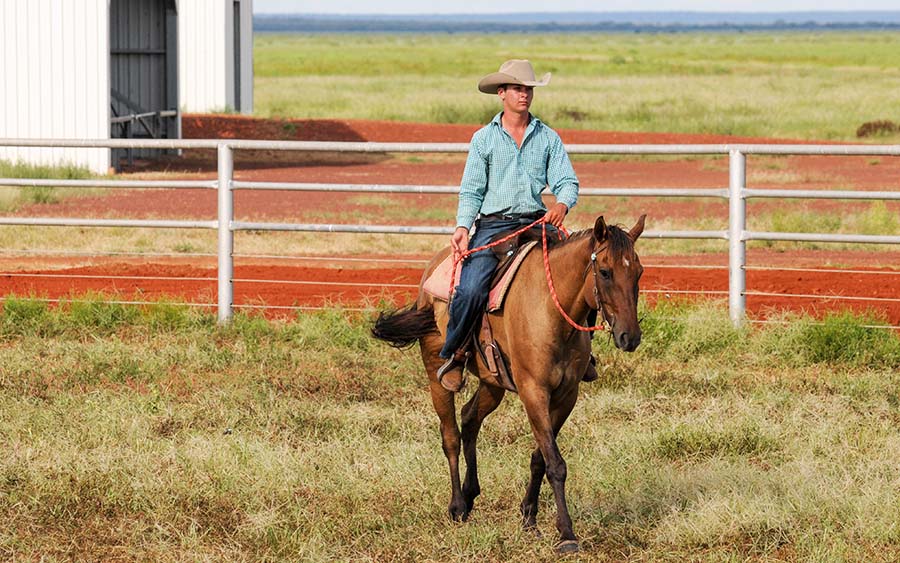One program that's leading the way in helping youth into agriculture is AgCAREERSTART.
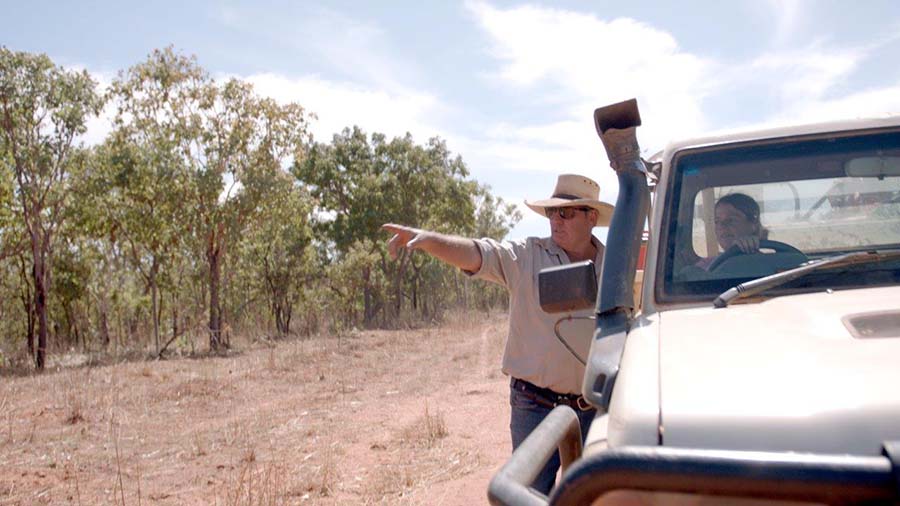 AgCAREERSTART participants spend a year on-farm learning the ropes form their host farmers.
AgCAREERSTART participants spend a year on-farm learning the ropes form their host farmers.
AgCAREERSTART is a structured gap year program for people aged between 17 and 25. Each participant is paired with a host farmer for 10-12 months of hands-on paid farm work. In addition to gaining boot-on-the-ground experience and learning the ropes, each participant is given a $4,500 Training and Engagement Bursary to upskill themselves.
Run by a small team from the National Farmers' Federation, the program is funded by the federal government, while the participants are paid by their respective host farmers. Rates are in accordance with the appropriate award.
Kayla Evans has spearheaded the AgCAREERSTART team since the program's inception at the beginning of 2022. Her team is responsible for suitably matching participants with host farmers and supporting both parties throughout the placement.
This program is about the overall upskilling of not only our young people but our farmers as well.
She said the program came about following a) the COVID-19 pandemic's highlighting workforce supply issues and b) a recommendation from the National Agricultural Workforce Strategy (Azarias et al. 2020) for a national gap year program for agriculture.
'Before this, there was not a formal path into agriculture apart from university and TAFE,' Kayla says.
'Even then, it could be hard to find on-farm work experience and difficult to figure out who is who, where to go and what employers are out there. There have been a few wonderful, intense upskill program initiatives, like Hay Inc., but when we are talking about truly inexperienced young people with no background or connection to ag, the options have been very limited.'
In its pilot year, AgCAREERSTART had 30 participants, increasing to 70 in 2023 and 80 in 2024, with participants coming from all across the nation. There has been a placement on a variety of enterprise types and in every Australian state and territory except the Australian Capital Territory.
On average, 50% of participants are from metropolitan areas, 20% are from rural areas but have no farm experience, and the other 30% have some level of farm experience.
Need to know: Host farmers
A common misconception among potential host farmers is that their business is not large or sophisticated enough to take on a worker. Almost all of the time, this isn't a problem.
While AgCAREERSTART enjoys working with large-scale enterprises, helping smaller-scale farmers dip their toe into the employment pool for the first time is also a key aim of the program.
'At the end of the day, this program is about the overall upskilling of not only our young people but our farmers as well,' Kayla says.
'We have farmers on this program whose AgCAREERSTART participant has been their first ever full-time employee. They have come to the program with an open mind and good attitude, have been willing to learn everything they've needed to learn, and it has been a really successful experience for them.'
Need to know: Participants
While potential participants are usually eager to hear what work awaits them, Kayla says the answer is rarely clear-cut. Instead of focusing solely on the enterprise type, she suggests considering the desired lifestyle more deeply.
'It's not as simple as going, 'this young person wants to work on a sheep farm; here's a sheep farm. We're looking at the aptitude of this young person, what their past experiences have been, what their career goals are and whether those things align with the farm business itself,' Kayla says.
'If you like being surrounded by lots of people, a large station or horticultural enterprise might be a good option, but if your goal is to be a farm manager one day, we'll put you with a farmer where you are one of the only employees and therefore get plenty of hands-on mentoring,' Kayla says.
With AgCAREERSTART primarily targeting those from urban backgrounds, Kayla says rural experience - or lack thereof - has no bearing on what makes a potential participant a good candidate for the program.
'What we and our farmers look for is keenness, willingness to give it a go and your ability to demonstrate that you understand what you're getting yourself into. The team is here to help every step of the way.'
About 84% of AgCAREERSTART participants complete the program. Of that, about 80% stay in agriculture - half stay on their host farm for another 3-6 months at least, and the other half leave to study or work elsewhere within the agricultural industry. Regardless of participants' chosen paths, Kayla emphasises the program's enduring benefits.
'With all the social licence issues we have going on at the moment in the industry, it's critical that more people understand agriculture. If the participants go off and do something else, they still understand ag more than they did before, and that's a win,' Kayla says.

